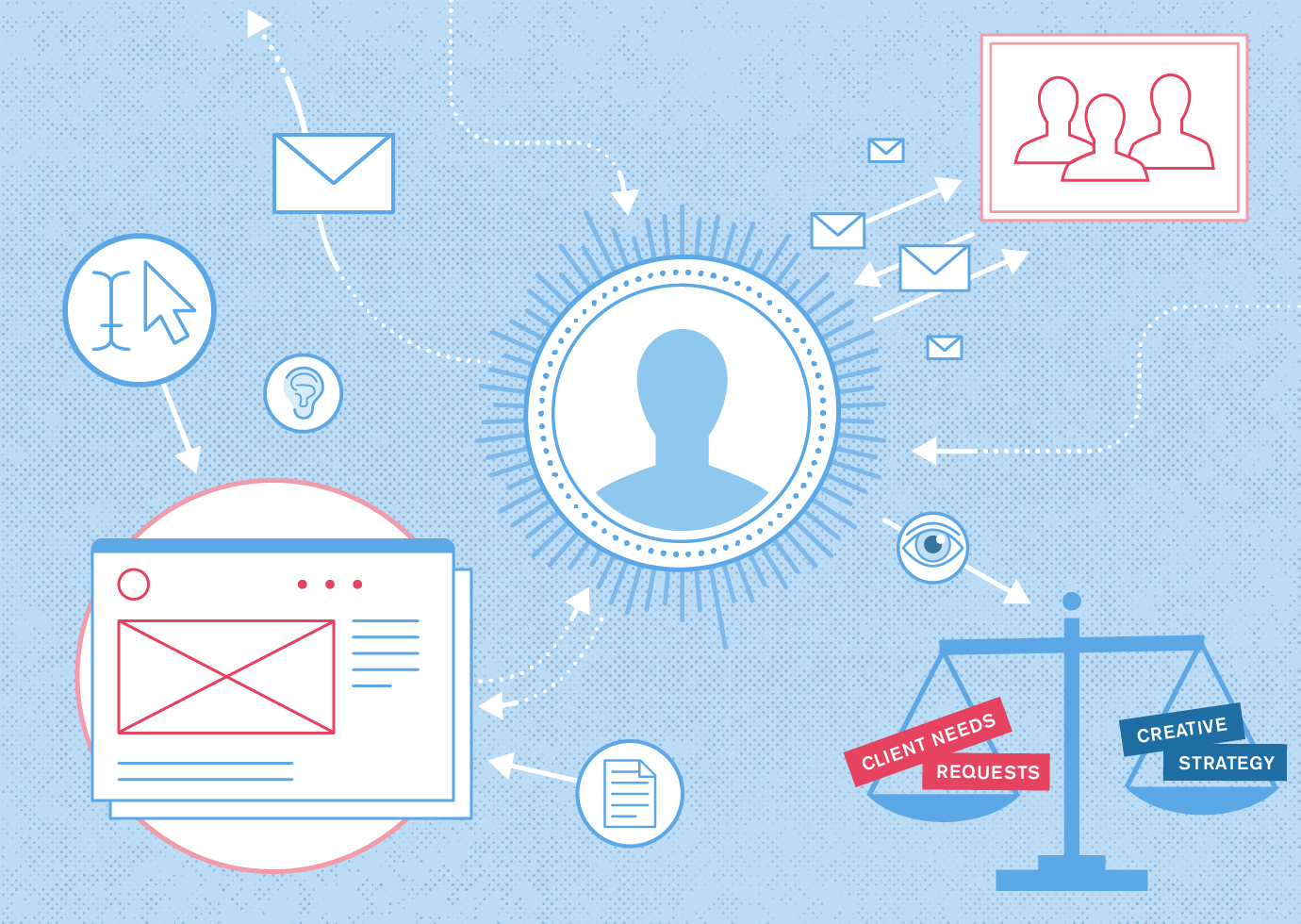Unpacking the core competencies of project management

Having worked as a project manager for seven years now, I can attest that this role often requires me to wear many hats. But no matter what new task or client request comes my way, I am constantly honing three core competencies that continually help me run successful projects and be a good leader for my team: organization, critical thinking, and communication. Here’s why each of these competencies is so important, and what kinds of tasks and questions I go through to make sure I’m on top of them.
Organization
Because project managers have so many different tasks to perform on a day-to-day basis, organization is essential to keeping each project moving according to plan. Being organized is also crucial to leading a project. More often than not, your team members will look to you for updates and direction. Your ability to guide them through next steps or changes in priorities will determine how smoothly a project moves along.
To ensure I stay organized overall, I do the following things when evaluating each of my projects:
- Prioritize tasks in the early morning: I read emails to capture any new or urgent requests, make adjustments to project work as needed, and contact team members directly if these adjustments impact their time. A golden rule I follow during this task is David Allen’s 2-Minute Rule: If you can do the task in less than two minutes, and it’s necessary, immediately do it.
- Schedule one-on-on check-ins according to project priority: I check in with my team throughout the day to make sure work is being completed as planned. It’s a good safety net in case there happens to be a miscommunication, and it’s an opportunity to collaborate with my team and understand how each person prefers to be managed. Some like having multiple check-ins, while others prefer a quick phone call or instant message.
- Conduct an end-of-day review: This is when I go over the progress that was made on each project and determine next steps. I confirm if my team met our deadlines, and if not, why. I write down what we need to do to get our project back on schedule, and check whether the team is adequately scheduled and fully briefed to work on the project tomorrow.
Critical Thinking
Successful project management requires constant problem-solving. To do that effectively, you need to be a critical thinker. That means no matter what phase of the project you’re in — initiation, planning, monitoring and controlling, etc. — you should always consider your stakeholders, the project goals and objectives, and the overarching strategy to achieve them. To hone my critical thinking, I try to keep the following things mind:
- Don’t hit “send” until you’re satisfied that the project meets all strategic requirements. Project managers are often the last line of defense before a project is delivered to a client. When a team member finishes a deliverable, it’s easy to think it’s all set to send over to the client. It’s important to take a moment to review the deliverable through the lens of the project’s goals and objectives. Ask yourself, “Is this what the client wanted? Does it fit within the overall strategy we outlined?” It might seem obvious, but veering away from the goals and objectives happens more than you think.
- Come to a problem with a proposed solution. Say you run into a challenge that will significantly impact the schedule and/or budget to complete a project. Good project managers will notify the client as soon as possible. Great project managers will also provide recommendations on how to solve the problem.
Communication
Organization and critical thinking aren’t possible without strong communication. And managing and monitoring communication requires a mix of efficiency and clarity. From the kickoff of a project to its completion, I ask myself these questions to ensure efficiency and get the clarity my team needs:
- What is the appropriate channel to communicate on (i.e. email, phone call, Zoom, etc.)?
- Can the directives/next steps just be sent in an email, or should a meeting be scheduled to discuss?
- Do my team members have enough project background and knowledge to move forward? Do I need to spend more time on the brief, ask the client for additional detail, and/or bring in an expert to help onboard anyone?
As a rule of thumb, I advise my project manager coworkers to “over communicate” with their teams and clients — in writing and in person — for a few reasons:
- It helps ensure everyone is on the same page. As the pandemic continues our work-from-home lifestyle, there’s likely more distractions in people’s lives than usual. So you can’t say for sure that someone on the other end of the phone was paying full attention during a meeting. Communicating next steps helps keep the client and creative team on track.
- It leaves a clear paper trail. If your project starts going off the rails, having a clear stream of communication can help you identify where that happened and what needs to be fixed.
- It shows that you are paying attention. Sending timely responses, even if it’s just acknowledging someone’s request, demonstrates that you’re aware of a person’s needs.
To be a truly successful project manager, you especially need to integrate empathy across each of these core competencies. As the person leading the project, I’m responsible for making sure everyone on my team, internal and external, is not only aligned but also feels heard. No one likes to feel like they don’t know what’s going on in a project, or that they don’t have space to voice their thoughts. Building commitment to getting a project done well requires a project manager to build trust with their teammates.